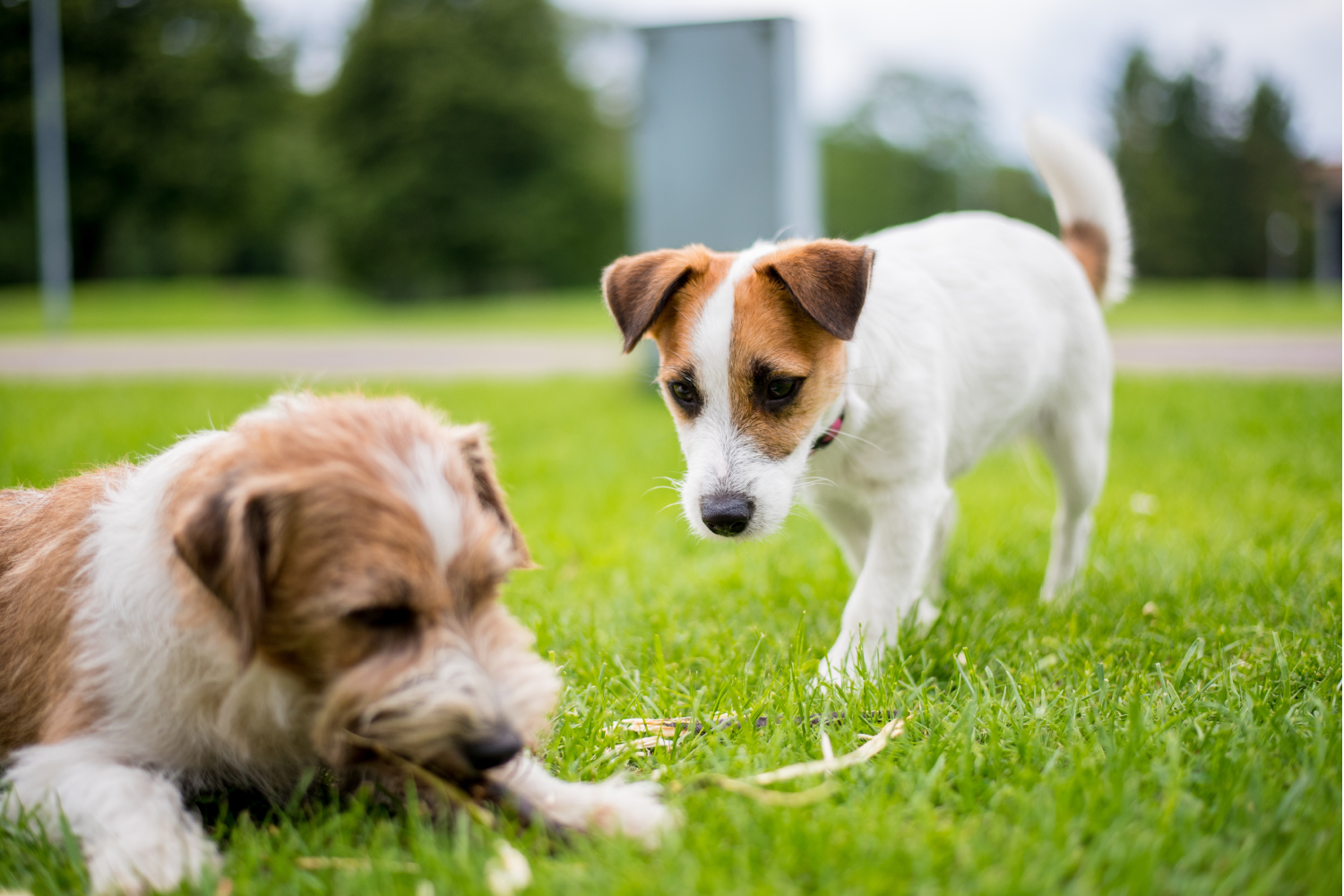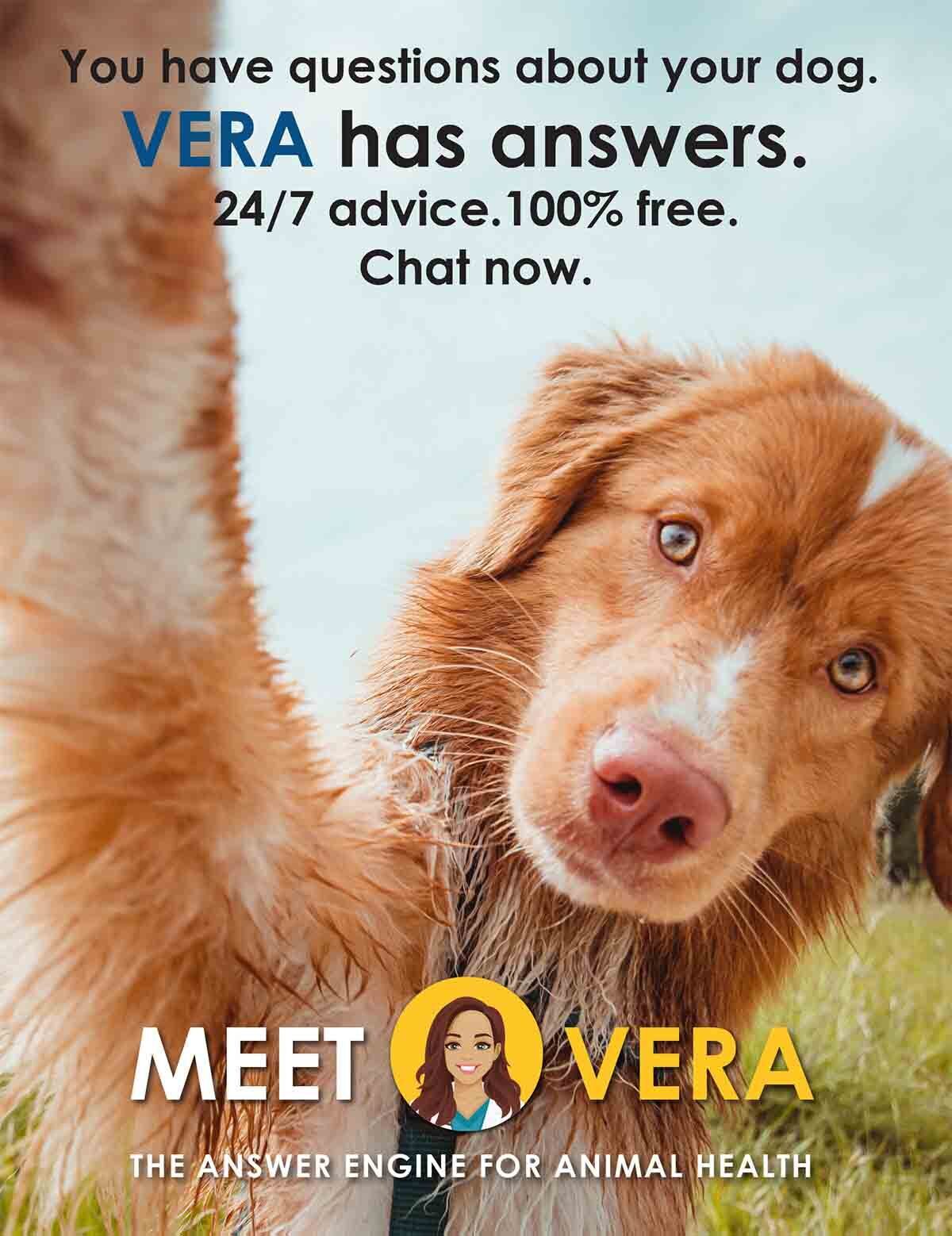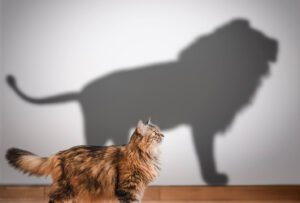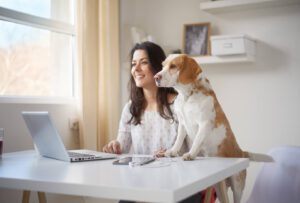Is your dog acting out? Could it be that your dog is jealous of the attention you are putting elsewhere?
Yes, actually, and it’s fairly similar to how humans experience jealousy. As you get to know your dog better, you might recognize certain behaviors that they exhibit as being of a jealous nature.
Does your dog push other people and pets out of the way to get to you? Do they act out by destroying items in the home? Both of these could be signs that your dog is feeling jealous. The more you pick up on their body language, the better you can understand their emotions.
Some acts of jealousy can be problematic, like your dog growling while on your lap at anyone coming near you. These are behaviors that you will want to stop as soon as possible to avoid further issues. Knowing the signs of jealousy can help you do this, so keep reading to learn more!
What Science Says About Dog Jealousy
University of California, San Diego
Researchers at the University of California, San Diego, ran a real study involving fake dogs that sought to prove that dogs experience jealousy. Dog parents were instructed to fake attention to an automated stuffed dog, a plastic pumpkin, and a pop-up book.
The canine participants, who were all small dog breeds, acted up more when their person’s one-on-one time was lavished on the toy dog, with 86% of real pups investigating the toy by sniffing its butt. The pumpkin and book incited far less of a reaction.
University of Auckland
A relatively new study on pet jealousy from the University of Auckland published in the Psychological Science journal asked the same question. Dogs watched their pet parents pet a fake dog and a fleece cylinder. The dogs pulled harder on the leash when their human was spending time with the fake dog — called the “social rival” in this experiment.
University of Vienna
In Vienna, Friederike Range set up a study where two dogs completed the same task (to “shake hands”), but only one was rewarded. The dog that didn’t get the reward eventually stopped performing the task, acting frustrated and anxious when their pup peer was lavished with praise.
Ultimately, while researchers can suggest that as social animals, dogs may be jealous, they’re not sure if dogs experience jealousy in the same way as people do, especially when taking into account a person’s capability for heightened self-awareness.
Why Might a Dog Get Jealous?
Some reasons that your dog might become jealous are:
- If a new dog or new pet enters the home
- If a new baby or family member moves in
- If there’s a change in their home environment
- If their primary person gives another animal or human attention
When dealing with a jealous dog, understanding the signs can help you to work on building up their confidence, so they don’t react to those jealous feelings. By using training resources, you can help limit this jealous behavior.
Signs Your Dog Is Jealous
Any change of behavior in your dog is going to be recognized. When they start to act out or act differently, it’s easy to notice these changes, alerting us that something might be wrong. Whether it be an adult dog or a new puppy, if you recognize any of the following signs of jealousy in your dog, it might be time to get to the bottom of this reaction.
1. Resource Guarding
Resource guarding is when a dog becomes possessive over their home and everything in it. This may include dog food, toys, areas, and their humans. If they feel like something of theirs might be taken away, they can act out toward whoever is threatening to take it away.
Resource guarding could look like growling or snapping at you when you go near their food, or they’ll gather their toys in one specific area. They might guard their humans by not allowing other dogs or people near them. You might notice that when on walks, your dog pulls you away from social interactions with other people and their dogs.
2. Inappropriate Bathroom Use
Going to the bathroom around your house, whether it’s urination or defecation, is often a clear communication attempt by your dog. They may be jealous and are finding ways to get their pet parent’s attention.
If your dog is experiencing incontinence even after you’ve addressed the behavior and jealousy issue, it’s time to talk to your veterinarian. Going to the bathroom around the house, especially when they are potty trained, could be a sign that they are suffering from a health issue. Need to talk to a professional ASAP? Reach out to AskVet’s veterinary experts, who are available 24/7.
3. Pushing Into You
One of the most tell-tale signs of your dog’s jealousy is if they are directly pushing themselves into you when you’re in close proximity to another being. Your dog may find a way to squeeze in between you and a partner on the couch or jump onto your lap, pushing another animal off. By putting their bodies as close as possible to you, they assert themselves as your top priority.
While this can feel like a comical and loving gesture, if you let it continue, the behavior will likely only become more prominent.
4. Destructive Behavior
If your dog doesn’t feel they are getting enough attention, they might turn to destructive behaviors. They might tear up some of your furniture, chew on your clothing and shoes, or get into the trash can. Your dog may also act out by barking incessantly or whining.
Dogs do this to get attention from you, but it can be a costly and dangerous problem to have. You can often curb this behavior by involving yourself in exercise and enrichment for your dog. That way, when you aren’t paying attention to them they can remain calm and relaxed.
5. Performing Tricks Unprompted
While performing tricks isn’t usually a bad thing, when unprompted, it can be a sign of jealousy from your talented pooch. If your dog starts giving you their paw, laying down in front of you, or doing other tricks like spinning and rolling over without you asking them to, they are trying to get your attention. This is a cute but desperate plea for you to look at them and give them some sort of affection and interaction.
6. Leaving the Room
Similar to how you might ignore someone you don’t want to speak to, your dog might leave the room to show you their disdain. If there’s a person or another animal in the house that your dog doesn’t want to see you around, they might take themselves out of the situation completely.
Instead of following them to comfort them, let them walk away and wait for them to return. When they come back, feel free to shower them with love. If you follow them, it only reinforces their behavior and tells them that’s a smart way to get your attention.
7. Aggression
The most undesirable jealous behavior that your dog can have is aggression. They may begin to act out aggressively if they think their position in the home is being threatened or they are not receiving adequate attention. Aggressive behavior might look like jumping, nipping, barking, or biting. While this can be very difficult to deal with, you must sort it out immediately.
You don’t want your dog to feel threatened, but you also don’t want guests to be uncomfortable in your space. You have to consider the safety of yourself, others, and your pet. Talking with animal behaviorists, a dog trainer, and your veterinarian may be the best option to help your dog curb this issue.
AskVet Can Help Give You Answers
When your dog is acting out in strange ways, there are plenty of questions that will arise. You might not want to call up your vet for every minor inconvenience that you recognize, which is where AskVet comes in.
With AskVet, you can reach out to our Certified Pet Coaches™ to discuss their jealous behaviors and come up with solutions. With access 24/7, if any issue arises, you can get quick and informal responses. Sign-up today for a virtual session with a Certified Trainer™ and learn more about how AskVet can help your dog overcome their jealous behaviors.
Sources:
Investigating Jealous Behaviour In Dogs | Scientific Reports
Jealousy In Dogs? Evidence From Brain Imaging | Animal Sentience
Study: Dogs can feel jealous, too | CNN
Yes, dogs do get jealous – new study | The University of Auckland






